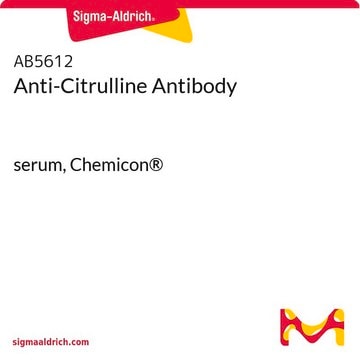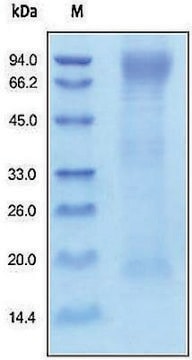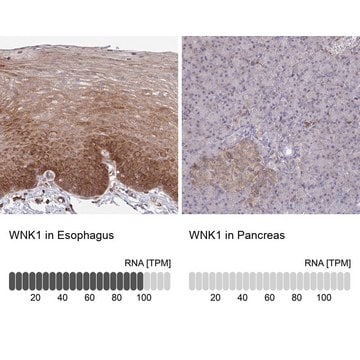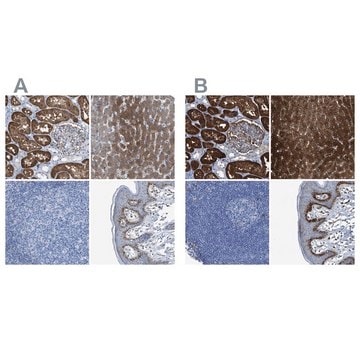ABF199
Anti-TIM-1 Antibody
from rabbit, purified by affinity chromatography
Synonyme(s) :
Hepatitis A virus cellular receptor 1, HAVcr-1, Kidney injury molecule 1, KIM-1, T-cell immunoglobulin and mucin domain-containing protein 1, TIMD-1, T-cell membrane protein 1, TIM-1, TIM, KIM1, TIM1, TIMD1
About This Item
Produits recommandés
Source biologique
rabbit
Niveau de qualité
Forme d'anticorps
affinity isolated antibody
Type de produit anticorps
primary antibodies
Clone
polyclonal
Produit purifié par
affinity chromatography
Espèces réactives
human
Technique(s)
immunofluorescence: suitable
immunohistochemistry: suitable
western blot: suitable
Numéro d'accès UniProt
Conditions d'expédition
wet ice
Modification post-traductionnelle de la cible
unmodified
Informations sur le gène
human ... HAVCR1(26762)
Description générale
Spécificité
Immunogène
Application
Immunofluorescence Analysis: 20 µg/mL from a representative lot detected TIM-1 in human uterus tissue.
Inflammation & Immunology
Immunoglobulins & Immunology
Qualité
Western Blotting Analysis: 1 µg/mL of this antibody detected TIM-1 in 15 µg of human uterus tissue lysate.
Description de la cible
Forme physique
Stockage et stabilité
Remarque sur l'analyse
Human uterus tissue lysate
Autres remarques
Clause de non-responsabilité
Not finding the right product?
Try our Outil de sélection de produits.
Code de la classe de stockage
12 - Non Combustible Liquids
Classe de danger pour l'eau (WGK)
WGK 2
Point d'éclair (°F)
Not applicable
Point d'éclair (°C)
Not applicable
Certificats d'analyse (COA)
Recherchez un Certificats d'analyse (COA) en saisissant le numéro de lot du produit. Les numéros de lot figurent sur l'étiquette du produit après les mots "Lot" ou "Batch".
Déjà en possession de ce produit ?
Retrouvez la documentation relative aux produits que vous avez récemment achetés dans la Bibliothèque de documents.
Notre équipe de scientifiques dispose d'une expérience dans tous les secteurs de la recherche, notamment en sciences de la vie, science des matériaux, synthèse chimique, chromatographie, analyse et dans de nombreux autres domaines..
Contacter notre Service technique







